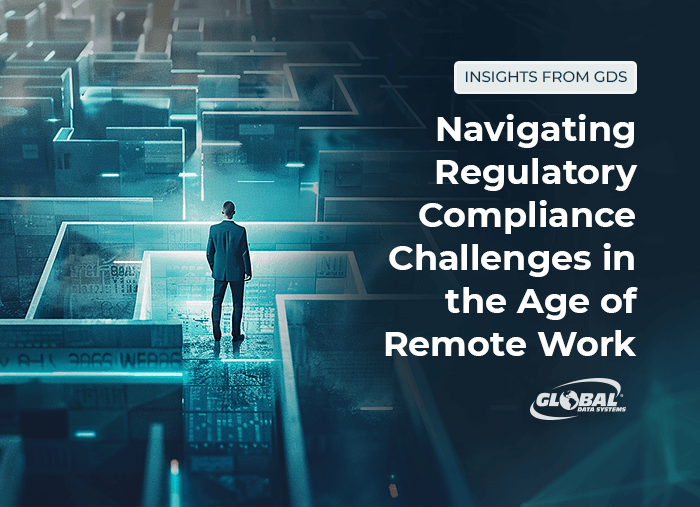Navigating Regulatory Compliance Challenges in the Age of Remote Work
Although some companies are issuing return-to-office mandates, most acknowledge that remote and hybrid work is here to stay. Fact is, remote work works — studies show that employees are just as productive working remotely. Remote and hybrid work strategies also save organizations money and provide intangible benefits that make employees happier and more engaged.

However, remote work makes it difficult to maintain compliance with government and industry regulations. Remote workers access, store and transmit information in ways that can violate data protection and privacy requirements. The Payment Card Industry Data Security Standard (PCI DSS) is a case in point.
PCI DSS version 4.0 went into effect on March 31, 2024, with a dozen broad new requirements. Among these are requirements for stronger authentication, anti-phishing and social engineering protection, and enhanced security for data in transit throughout the network. Meeting these mandates is more difficult if employees are working remotely.
You can offload some of the compliance burden by partnering with a managed services provider (MSP). Qualified MSPs have security pros on staff who can recommend tools and best practices for compliance management. You gain access to these valuable skill sets without the substantial cost of hiring full-time security and compliance experts.
Understanding Regulatory Requirements
The first step toward PCI DSS compliance is determining what’s “in scope.” The PCI Scope refers to the systems and services that store, process or transmit cardholder data. Also known as the cardholder data environment (CDE), it more broadly refers to the people, processes and technologies that could impact the security of that data.
Remote work expands the PCI Scope if remote workers interact with cardholder data. Work-from-home PCs, laptops, mobile devices, networking equipment and other components must therefore meet PCI DSS requirements. You must ensure that these systems are kept up to date with the latest patches and have all the necessary security controls. In addition, PCI DSS now mandates multifactor authentication — it must be implemented for all user accounts that access cardholder data.
Regular security awareness training is another PCI DSS mandate. In particular, employees should be trained in how to spot phishing and other types of social engineering attacks. Training is especially important for employees working remotely, but it can be difficult to implement.
Unlike previous versions of the standard, PCI DSS 4.0 offers a more flexible approach. Rather than mandating a rigid set of security requirements, it enables organizations to implement custom security controls. However, organizations must show that the alternative controls are equally effective.
Remote work makes it difficult to maintain compliance with government and industry regulations.
Why Partner with an MSP
Even with this flexibility, few organizations have the in-house resources or skill sets to meet the latest requirements of PCI DSS and other regulations. That’s why partnering with an MSP makes good business sense. Your MSP can help you implement robust security controls and other monitoring tools to help prevent a data breach.
Of course, regulatory compliance isn’t just an IT issue — you need to ensure that users follow security best practices. Without effective oversight, users can be tempted to work around security controls and use “shadow IT” services that put data at risk. Your MSP can help you establish security policies and procedures for remote workers and ensure that they are uniformly enforced. Qualified MSPs also offer security awareness training programs that are engaging and effective.
Compliance requirements have become even more important due to the data security and privacy risks of remote work. If your organization lacks the in-house resources and skill sets to meet regulatory mandates, we invite you to contact GDS for a confidential consultation.
In our next post, we’ll look specifically at PCI DSS compliance requirements for both onsite and remote call centers.
Benefits of Managed IT Services from Global Data Systems
- Strategic Managed IT: We help you solve your technology related business problems.
- Connectivity: We get you reliable, secure connectivity anywhere in the western hemisphere in 48 hours.
- Support: When you need help simply call our 24x7x365 support number.
- Billing: Instead of managing hundreds of vendors - get one, easy to read bill from GDS.
Contact Managed Services Provider, Global Data Systems >
Get In Touch
310 Laser Lane
Lafayette, Louisiana 70507
Office Hours: Monday - Friday
8 a.m. - 5p.m.
Contact Us >
24 / 7 / 365 Support
Our dedicated support
staff are available by
phone 24 hours a day.
Phone: 888-435-7986

